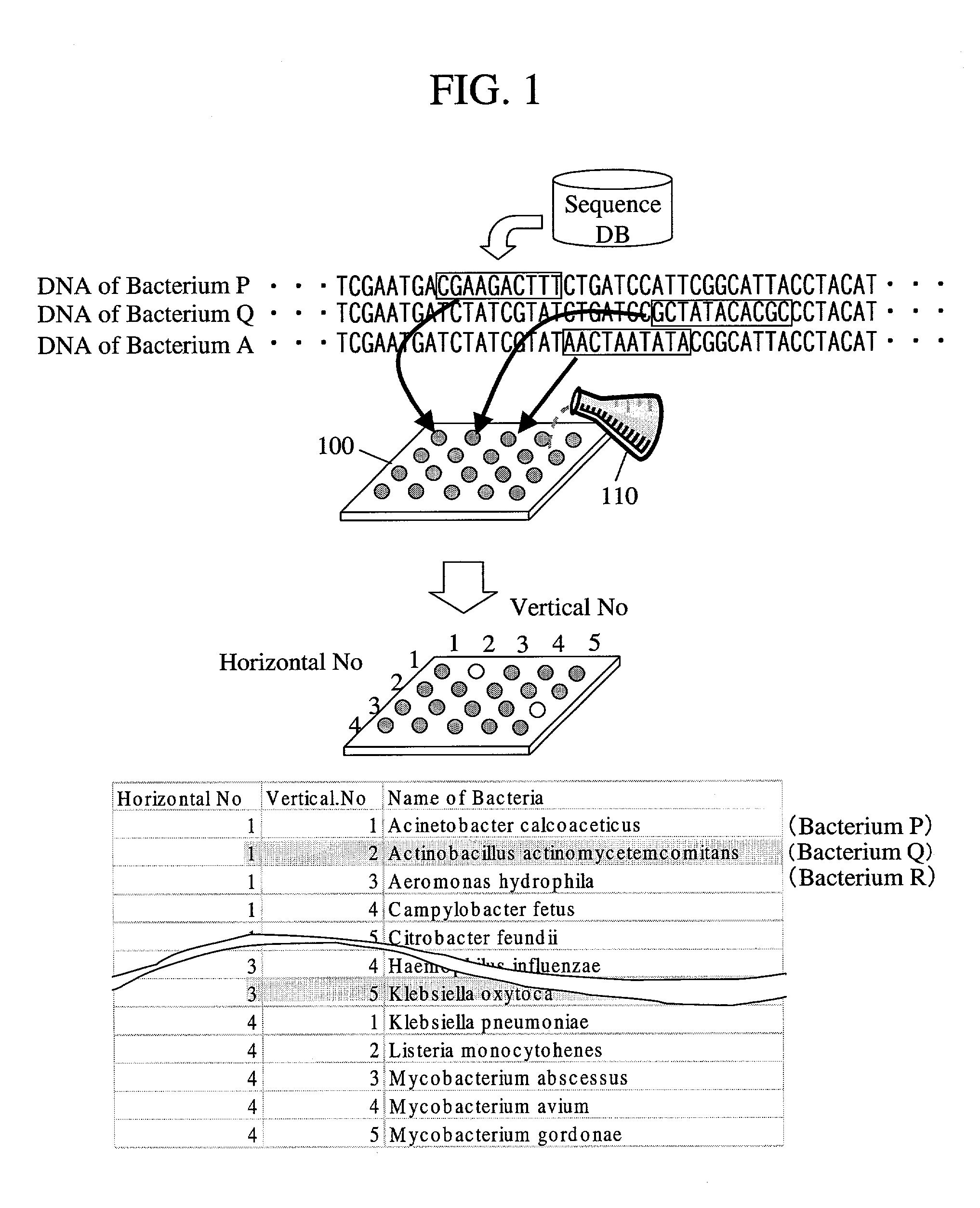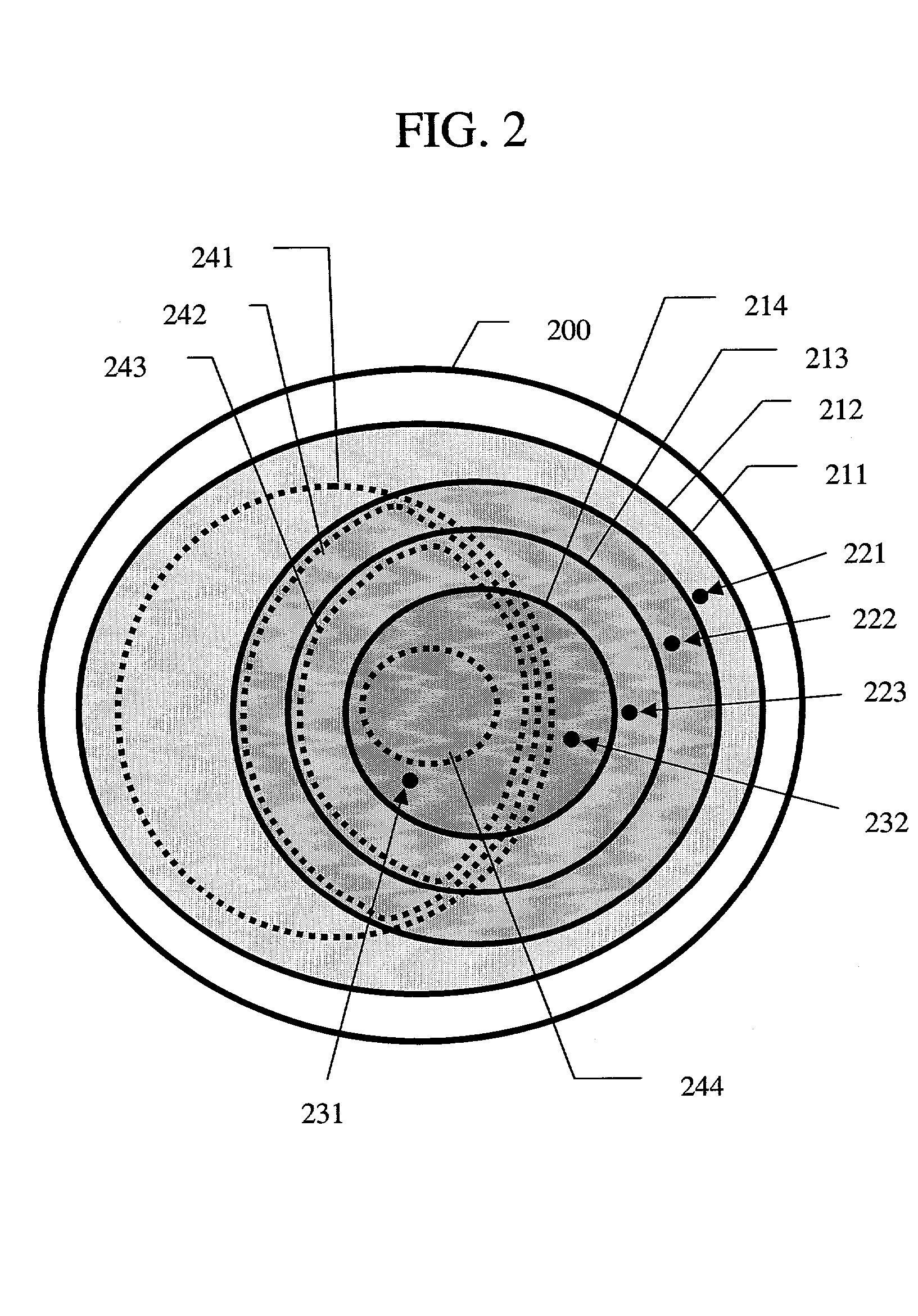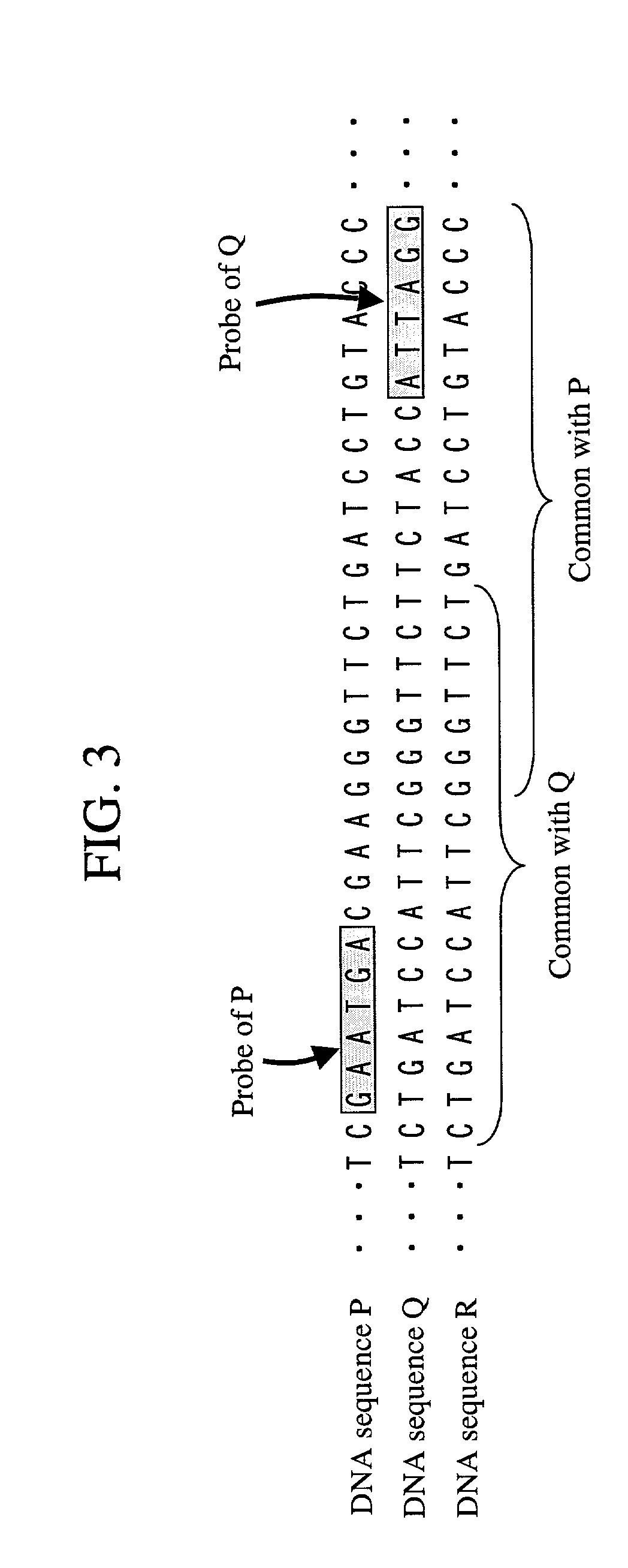Probe designing apparatus and probe designing method
- Summary
- Abstract
- Description
- Claims
- Application Information
AI Technical Summary
Benefits of technology
Problems solved by technology
Method used
Image
Examples
example 1
[0133]Influenza is likely to contribute to a complication with bacterial pneumonia (Kakogawa-shi, Kako-gun, Medical Association Infectious Disease Information Provision System, Memo. 20, dated 98.2.1)
example 2
[0134]MRSA (methicillia resistant staphiococcus aureus) simultaneously exists with Pseudomonas aeruginosa with high probability (Homepage of Inasa Redcross Hospital, updated 1996 / 07 / 26)
example 3
[0135]Vancomycin resistant Enterococcus is likely to contribute to a mixed infection with Pseudomonas aeruginosa or Escherichia coli (Infectious Diseases Weekly Report: Story about Infectious Diseases, 2000, the 20th week (May 15 to May 21), the 21st week (May 22 to May 28)
PUM
| Property | Measurement | Unit |
|---|---|---|
| Temperature | aaaaa | aaaaa |
| Temperature | aaaaa | aaaaa |
| Volume | aaaaa | aaaaa |
Abstract
Description
Claims
Application Information
 Login to View More
Login to View More - R&D
- Intellectual Property
- Life Sciences
- Materials
- Tech Scout
- Unparalleled Data Quality
- Higher Quality Content
- 60% Fewer Hallucinations
Browse by: Latest US Patents, China's latest patents, Technical Efficacy Thesaurus, Application Domain, Technology Topic, Popular Technical Reports.
© 2025 PatSnap. All rights reserved.Legal|Privacy policy|Modern Slavery Act Transparency Statement|Sitemap|About US| Contact US: help@patsnap.com



